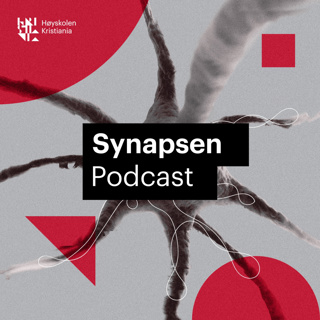
Randal Marlin, “Propaganda and the Ethics of Persuasion” (Broadview Press, 2013)
It’s been 100 years since the start of the First World War, a conflict that cost millions of lives. In his recently revised book, Propaganda and the Ethics of Persuasion (2013), Randal Marlin writes that Britain pioneered propaganda techniques to sell that war that have been imitated ever since. He tells how the British spread a false story about Germans boiling the bodies of their dead soldiers in corpse factories. It was designed to paint Germany as a uncivilized, ghoulish nation that had to be fought. Marlin also tells how American propaganda during the First World War helped foster the modern public relations and advertising industries. Marlin, who studied with the French propaganda theorist Jacques Ellul, sees propaganda as a manipulative exercise of power and he argues that in order to defend ourselves against it, we need to recognize its methods and techniques. His revised second edition analyzes how the Bush administration used fear to persuade Americans to support the invasion of Iraq. The book traces the history of propaganda from ancient times to its present, post 9/11 forms Randal Marlin is a professor of philosophy at Carleton University in Ottawa. Learn more about your ad choices. Visit megaphone.fm/adchoices Support our show by becoming a premium member! https://newbooksnetwork.supportingcast.fm/critical-theory
17 Nov 201441min

Bonnie J. Mann, “Sovereign Masculinity: Gender Lessons from the War on Terror” (OUP, 2014)
In the aftermath of 9/11, the American political landscape and its discourses took a peculiar turn. America’s national sovereignty-conceived as the expression of its indomitable masculinity-had been challenged. Its mythical invulnerability had been crushed. The response of the United States to these events was both disturbing and enlightening. It revealed the darker underbelly of the American mythos, and revealed the highly gendered nature of American politics. Making use of gender testimony and other widely-shared cultural phenomena that arose during the ‘War on Terror’, Bonnie J. Mann constructs a notion of gender as bound up with the political. Listen in to our discussion of Dr. Mann’s new book Sovereign Masculinity: Gender Lessons from the War on Terror (Oxford University Press, 2014). Learn more about your ad choices. Visit megaphone.fm/adchoices Support our show by becoming a premium member! https://newbooksnetwork.supportingcast.fm/critical-theory
12 Nov 201459min

Marisol Sandoval, “From Corporate to Social Media” (Routledge, 2014)
What would a truly ‘social’ social media look like? This is the core question of From Corporate to Social Media: Critical Perspectives on Corporate Social Responsibility in Media and Communication Industries (Routledge, 2014), the new book by Marisol Sandoval. The text is concerned with the emergence of a seemingly open and democratic space, social media, which is in fact subject to corporate dominance and control. The book aims to provide a political economy of the social relations in which media and communications industries are embedded, to reveal the inequalities of both power and control in social media. This point is illustrated through case studies of major corporations. Sandoval takes an important theme- including net neutrality, e-waste, ideologies, and labour conditions- and compares and contrasts CSR statements and positions with the reality of corporate actions on these themes. Case studies include Google, Apple, Disney and AT&T. The book concludes by considering how social media might become more social by thinking about how it might contribute to the idea of the commons, a concept that has been crucial to much critical theory thinking in recent years. By linking ideas of the commons to the political economy of media and communications, From Corporate to Social Media, gives an important new basis for future theoretical discussion. The book is therefore essential reading for all of us participating in the new world of social media, whether as academics, employees or as citizens. Learn more about your ad choices. Visit megaphone.fm/adchoices Support our show by becoming a premium member! https://newbooksnetwork.supportingcast.fm/critical-theory
5 Nov 201439min

Kathrin Yacavone, “Benjamin, Barthes, and the Singularity of Photography” (Bloomsbury, 2013)
Kathrin Yacavone‘s Benjamin, Barthes, and the Singularity of Photography (Bloomsbury, 2013) is an engaging study that explores connections between two of the most significant thinkers of the twentieth century: Walter Benjamin (1892-1940) and Roland Barthes (1915-1980). Considering Benjamin’s influence on Barthes’ later work on photography, the book also opens up the possibility of thinking of Barthes’ influence on how we think about and understand Benjamin in terms of the medium’s effects and significance in theoretical terms. Divided into two parts, the book situates Benjamin and Barthes in their respective historical and political contexts while pursuing a series of themes through their work on photography: self and other, autobiography, memory, and redemption. It also looks closely at each author’s readings of particular photographs, and even establishes links between these. An intriguing postscript explores the continuing relevance of the ideas of these thinkers into the age of digitization. Listeners will find much in our conversation that illuminates the history and theory of photography, as well as the ideas and oeuvres of both Benjamin and Barthes more broadly. In our interview, Kathrin and I speak about the book and also about her recent work editing a Summer 2014 issue of Nottingham French Studies on “Photography in Contemporary French and Francophone Cultures”. Outlining the themes of the articles included in this recent collection, Kathrin offers some thoughts on the continuing vitality of the medium in present-day France. Learn more about your ad choices. Visit megaphone.fm/adchoices Support our show by becoming a premium member! https://newbooksnetwork.supportingcast.fm/critical-theory
29 Okt 201453min

William Viney, “Waste: A Philosophy of Things” (Bloomsbury, 2014)
What is waste? William Viney‘s Waste: A Philosophy of Things (Bloomsbury, 2014) explores the meaning of waste across a variety of contexts, including literature, sculpture and architecture. The text begins by stressing the importance of time to our understanding of waste, as opposed to more traditional conceptions that are grounded in spatial distinctions. Rather than looking at waste through the dualities of useful or not useful, dirty or clean, William Viney asks us to be attentive to our relationship to objects in time, understanding how they are understood by the many narratives that they may contain, which they may have been party to, and which they may require for us to be able to understand them. The book draws on an emerging but established tradition of work that draws attention to the role of materiality and objects in our understanding of the world. By offering an alternative to the view that waste is the garbage of consumer capitalism, we can see the value of things as their potential, as it is realised in time. The importance of time to understanding objects, as well as understanding waste, is seen through diverse examples, from Cornelia Parker’s sculptures, one created from an exploded shed, through the material objects of the manuscripts of James Joyce, to the representation of future ruins in The Planet of The Apes. These diverse and eclectic sites to exploring waste sit alongside the readings of more traditional subjects for literary theory, such as Elliot’s The Waste Land, meaning the book will appeal to a range of scholars working across the humanities and in the social sciences. Learn more about your ad choices. Visit megaphone.fm/adchoices Support our show by becoming a premium member! https://newbooksnetwork.supportingcast.fm/critical-theory
15 Okt 201439min

Vernadette V. Gonzalez, “Securing Paradise: Tourism and Militarism in Hawai’i and the Philippines” (Duke UP, 2013)
Vernadette Vicuna Gonzalez‘s Securing Paradise: Tourism and Militarism in Hawai’i and the Philippines (Duke University Press, 2013), examines the intertwined relationship between tourism and militarism in Hawai’i and the Philippines. Dr. Gonzalez questions dominant narratives of tourism as a tool of development by focusing on tourism as a means of both signifying and legitimating types of security provided by American military forces. Dr. Gonzalez uses an archive that includes literary works, travel brochures, highways, military bases and travel tours, in order to expose how tourism thrives on feelings of nostalgia, heroism and international brotherhood. Learn more about your ad choices. Visit megaphone.fm/adchoices Support our show by becoming a premium member! https://newbooksnetwork.supportingcast.fm/critical-theory
22 Sep 20141h 18min

Karl Spracklen, “Whiteness and Leisure” (Palgrave Macmillan, 2013)
Our taken for granted assumptions are questioned in a new book by Karl Spracklen, a professor of leisure studies at Leeds Metropolitan University in England. Whiteness and Leisure (Palgrave, 2013) combines two bodies of theoretical literature to interrogate leisure activities which seem innocuous or inoffensive. The book deploys insights from critical race theory along with the work of Jurgen Habermas to at once critique leisure as a site for the continued reproduction of inequality, but at the same time consider the utopian or transformative possibilities offered by leisure activity. The central inequality concerning Whiteness and Leisure is that of the socially constructed, but socially powerful, idea of race. Spracklen argues that whilst there is no scientific evidence for the vast swathes of claims made about race, the idea is influential in modern life. Most notably, ideas of race create categories of normal or taken for granted, in the case of whiteness, and other, exotic and different in the case of blackness. The replication of social inequality using categories of race is shown in discussions of sport, both participating and watching, of popular culture, such as Harry Potter and World of Warcraft, Music, including Folk and Metal, and forms of travel, tourism and outdoor experience. Drawing on a wide range of literature, empirical examples and personal anecdotes, the text will be of interest to readers from across both social science and the humanities, as well as anyone concerned with social justice. Learn more about your ad choices. Visit megaphone.fm/adchoices Support our show by becoming a premium member! https://newbooksnetwork.supportingcast.fm/critical-theory
12 Sep 201446min

John Protevi, “Life, War, Earth: Deleuze and the Sciences” (University of Minnesota Press, 2013)
Right now, humanists across very different disciplinary fields are trying to create the kinds of cross-disciplinary conversations that might open up new ways to conceptualize and ask questions of our objects of study. John Protevi‘s new book offers a wonderfully stimulating conceptual toolbox for doing just that. Life, War, Earth: Deleuze and the Sciences (University of Minnesota Press, 2013) creates (and guides readers through) a dialogue between the work of Gilles Deleuze and some key works and concepts animating contemporary geophilosophy, cognitive science, and biology. In doing so, Protevi’s work also has the potential to inform work in STS by turning our attention to new possibilities of thinking with scale, and with a process-oriented philosophy (among many other things). A first introduction lays out some of the basic conceptual tools and orientations emerging from Deleuze’s work, and a second introduction uses some of these ideas to explore the work of Francisco Varela in terms of a political physiology of “bodies politic.” After this pair of introductions, the following chapters focus on particular case studies, ranging from ancient and modern warfare, to hydropolitics, to the notion of a “socially mediated neuroplasticity” in cognitive science, to the role of affect in understanding the Occupy Wall Street movement, to the “eco-devo-evo” of Mary Jane West-Eberhard, and much, much else. It’s a fascinating study that has much to offer for the reader who is interested in the creative and analytic possibilities of bringing continental philosophy to bear in science studies. Learn more about your ad choices. Visit megaphone.fm/adchoices Support our show by becoming a premium member! https://newbooksnetwork.supportingcast.fm/critical-theory
22 Aug 20141h 8min




















